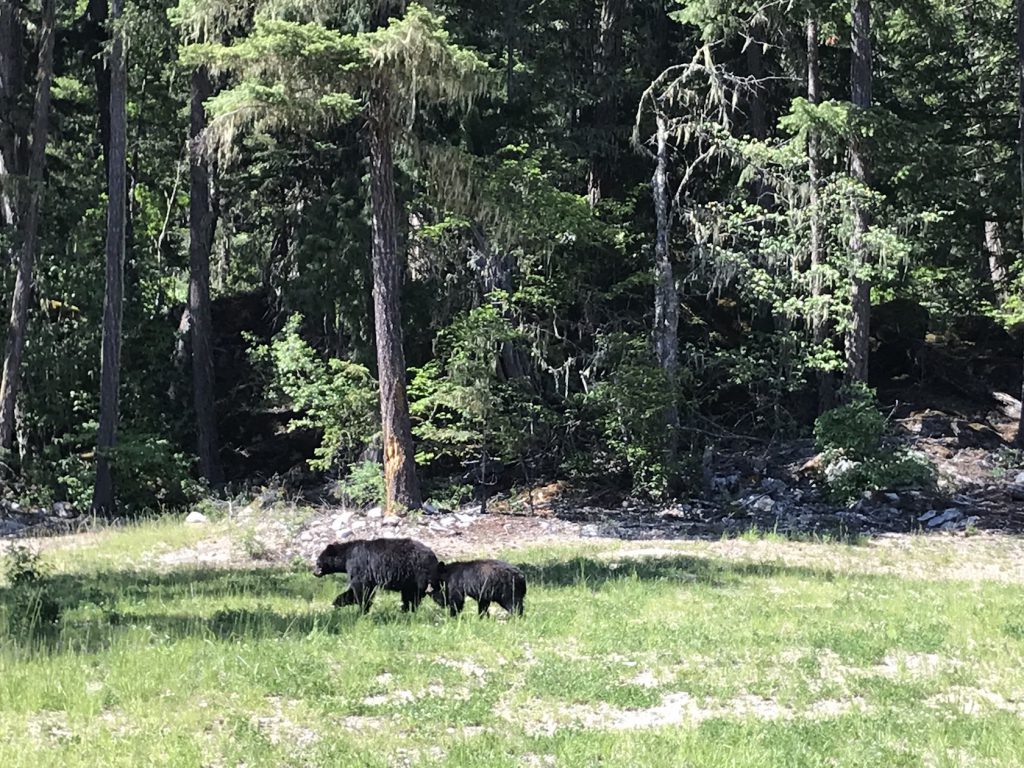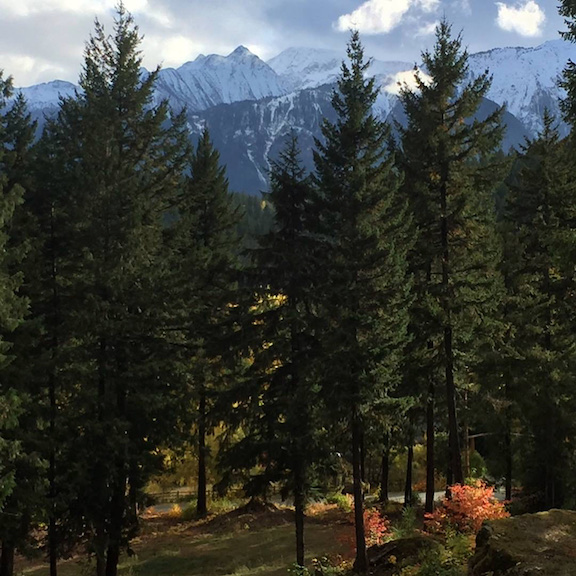This article was previously published in the Lake of the Woods Area News. It is reprinted with permission.
Just how good is nature for us…really?
I kind of feel like I’m preaching to the choir for readers of the Area News magazine on this topic. Most of us already know that time in nature is good for us. But do we really know just how good? I spoke with Dr. Joti Samra, R. Psych, who is a national thought leader on mental health. She says that while we get that nature is good for us, we don’t understand all the reasons why. “There’s persuasive evidence that time in nature can help reduce cortisol levels, which in turn can lessen stress levels, anxiety and even the symptoms of depression.”

She cites that it’s only (pun intended) natural for so many of us to gravitate toward green space. “The move away from and ultimately, our separation from nature is quite recent when you consider the length of time we humans have been on this planet.”
Those of us in this neck of the woods are living lifestyles where we are enjoying the innate connection to nature so there’s lots of good news for us. But what about our young people who are part of a generation that is screen-dependent for both work and play? Studies have shown that screen time is associated with increased fatigue, depression, anxiety, ADHD in children, and poor concentration.
Samra says this is a serious concern. She shares there’s measurable scientific evidence that short term and working memory improve in nature. Additionally, nature supports the creative process allowing for higher levels of concentration and sharper thinking.
“There’s also proof that being outside and in green space has a protective impact on children’s eyesight as they are less likely to get near sightedness,” she says.
Natural medicine with no side effects
Then there’s the obvious fact that being outdoors provides the benefits of natural sunlight and much needed vitamin D. This contributes to a natural stabilization of melatonin levels, which helps regulate sleep cycles; something that is offset by too much screen time. “Exposure to natural light can equal and surpass the beneficial impacts of anti-depressants,” Samra says. “We know that being exposed to light even on cloudy days can provide tremendous benefits for people that are impacted by a seasonal component to their mood. Even on a cloudy cold day she urges clients to open blinds, sit out on the deck or to just get a coffee and sit by a window and look outside.
Samra says that being “hyper aroused physiologically”, which occurs when we’re in an environment with tons of stimulation, can amplify negative emotions. “Nature counters that naturally and organically.” Part of this, she says, is its repetitive structure. “Looking out at water, or mountains, or a forest is easy on the brain . When we’re constantly moving from task to task, our senses are being bombarded. Anything that does the opposite of that is relaxing.” She adds that it’s a misnomer that we can multi task. “The perception of being busy goes up but production and efficiency goes down,” she says. A short walk allows us to go back to work or whatever we’re facing in a more focused way.”
This can be particularly helpful through tough times. “Nature combats mental fatigue, so when we hit those points where we need to get away from the intensity of other things in life, be that big life events such as divorce, death, or worries about our children or parents, or even smaller day to day stressors — time in nature gives us a pause so that we can shift our perspective and go back to the rest of our life with more energy.” There’s also a theory, although less proven, that being in awe of the natural world leads to a more positive mood. “We become less self-focused and start to see ourselves as part of something much grander.”

A study by a team of Japanese researchers found that chemicals called phytoncides in some trees can reduce stress hormones, lower anxiety, and improve blood pressure and immunity. Their conclusion was that forest-air bathing (being in the presence of trees) and walking is beneficial to human health.
Samra says that there is also evidence that time in nature can lower rates of inflammation, which is tied to a range of autoimmune diseases such as cancer and inflammatory bowel disease, as well as depression. Nature really is the ultimate natural medicine which, as Samra says is mostly, “free with no side effects!”
Good for all of us
Many of you likely know the joy of being active in nature but did you know that there are psychological benefits that may increase your physical prowess when jogging or doing other active sports outside rather than on a boring treadmill? Nature can energize you in a way that increases positive thoughts and can actually reduce fatigue. But what about those of us who are seasonal or weekend dwellers in nature and have to spend time in the concrete jungle that is home? Experts suggest creating green spaces within your urban environment and if possible work or relax in spaces that have a view of greenery either outside or around you. If this isn’t possible, have photos of nature nearby and as screen savers. Watching videos featuring nature can also be helpful.
Eating natural foods, including fruits and vegetables, nuts and seeds, lean and hormone-free proteins and wholesome grains is another way to bring nature into your body. If you can grow your own food even better.
While a “city girl” living in Vancouver, Samra surrounds herself with plants, has a view of the mountains and is within walking distance of Stanley Park. She is also the new owner of a “tiny house” on a scenic, rural acreage in Pemberton, B.C., where she hopes to feed the call of nature she is feeling more and more. Her new neighbours (see photo) have been very welcoming.
Those of us with camps or homes in the Kenora and Lake of the Woods area are truly the lucky ones. Here’s to making more time in our glorious green spaces, to living longer and healthier, and being better able to cope with the ups and downs of life…naturally!
Dr. Joti Samra, R.Psych., is a registered psychologist and Founder and Principal of MyWorkplaceHealth.com and Dr. Joti Samra, R.Psych. & Associates.

